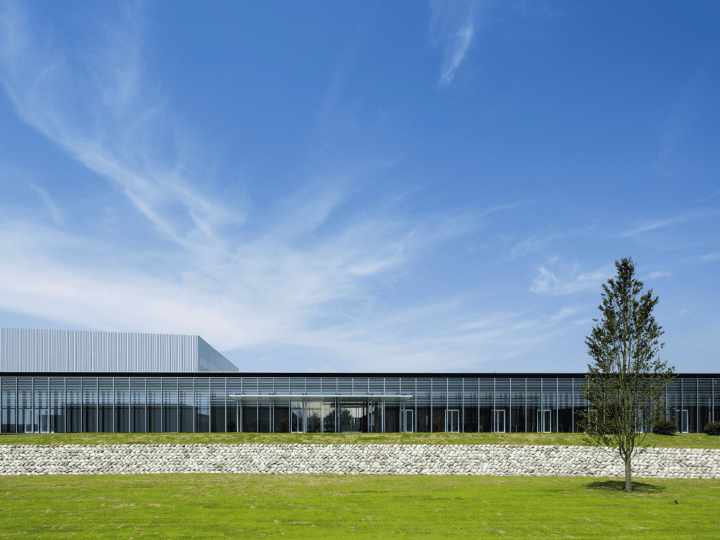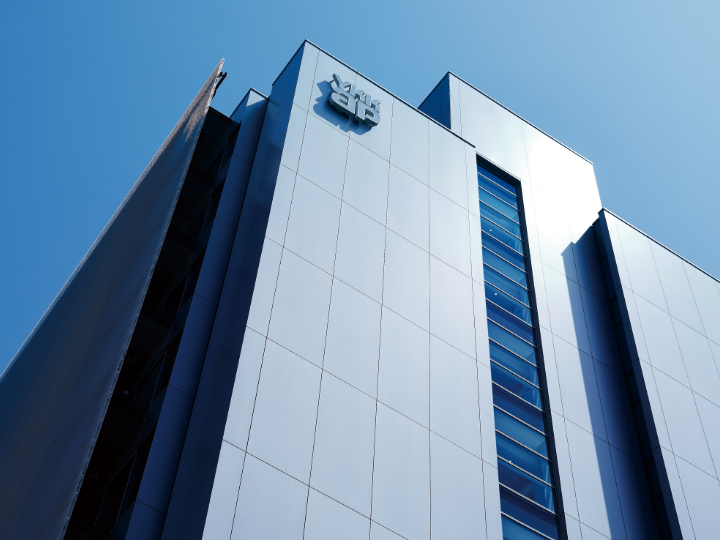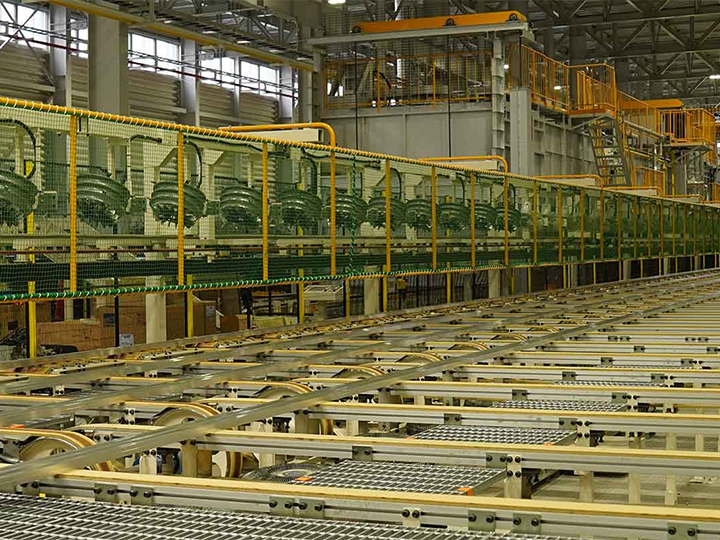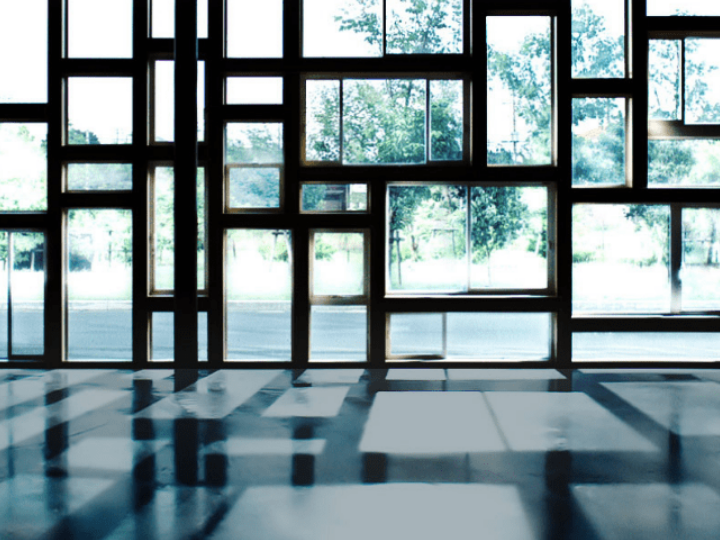- HOME
- Newsroom
- News Releases
- YKK AP Issues “Environmental Report 2023”
YKK AP Issues “Environmental Report 2023”
A 29% reduction in CO2 emissions in-house and a 25% reduction in waste emissions
YKK AP Inc. (Headquarters: Chiyoda-ku, Tokyo; President: Akira Uozu) has issued the YKK AP Environmental Report 2023. FY2022 was the second year of the 6th Mid-term Environmental Business Plan (FY2021–2024), in which the company focused on four environmental issues outlined in its Environmental Management Policy: climate change, resource recycling, water, and biodiversity. The company has achieved a 29% reduction in CO2 emissions in-house compared with FY2013, and a 25% reduction in waste emissions compared with FY2016. Further details are available on the company website.
https://www.ykkap.co.jp/company/jp/sustainability/environment/report2023/ (in Japanese only)
| Environmental activities in FY2022: main points |
| [1] Climate change - Sale of high thermal insulation windows led to 127% contribution to reduction of CO2 during use compared with FY2020 [(1)] - Reduction of CO2 emissions in-house by 29% compared with FY2013 [(2)] [2] Resource recycling - Reduction of waste emissions by 25% compared with FY2016 [(3)] - Reduction of waste intensity*1 by 39% compared with FY2016 [(3)] [3] Water - Reduction of water use by 29% compared with FY2013 [(3)] [4] Biodiversity - 116 community contribution activities carried out [(2)] (1) YKK AP Group (Japan) (2) YKK AP Group (Japan and overseas) (3) YKK AP Group (Japan and overseas manufacturing bases) *1: Waste emissions per unit of sale |
Main initiatives and outcomes in FY2022
In FY2022, the company strengthened its initiatives to realize carbon neutrality and a circular economy; it was praised as an environmentally advanced company in the industry and recognized as an Eco-First Company by the Ministry of the Environment.
[1] Climate change
In January 2019, the company gained SBT (Science Based Targets) certification; in May 2019, it endorsed the Task Force on Climate-related Financial Disclosures (TCFD), assessed effects on business activities from the perspective of both climate-related risks and opportunities, and promoted initiatives after reflecting this in management strategies. In FY2022, the company aimed to bring the target year for the realization of carbon neutrality forward from 2050 to 2040, and implemented measures focused on energy-saving at an annual rate of more than 1.3%, switching fuels, and introducing renewable energy. The “Carbon Neutral Project,” which has an Executive Vice President as project leader, worked on initiatives based on a carbon neutral technology roadmap determined by six working groups (WG). Of these, the Energy Creation WG promoted the introduction of renewable energy for in-house consumption on company sites, and to date has introduced solar power generation and small-scale hydraulic power generation totaling 6,600 kW in nine bases in Japan and overseas (equivalent to a reduction of 2,600 t of CO2 a year in FY2022).

Bases where solar power generation equipment is installed (as of April 2023)
[2] Resource recycling
When it comes to waste emissions, waste intensity, and the waste recycling rate, the company uses indicators that include overseas manufacturing bases in their scope, and focused on reducing material input aiming for sustainable materials use. With regard to aluminum, it updated its aluminum melting furnace in the Shikoku Plant to ensure the proactive use of aluminum waste from the city, and expects to construct a new recycling furnace in FY2023.
The vinyl scraps created during the manufacturing process are reused as resources for vinyl material, and the company has developed vinyl profiles that combine new material and recycled material, as well as worked on the development of new uses for this, including starting to provide products that utilize it.

Production of vinyl
[3] Water
The focus was on reducing water use, with a review of the amount received, the multi-stage usage of washing water, and other initiatives, leading to a reduction of 29% compared with FY2013 and the achievement of the Plan.
[4] Biodiversity
The company engaged in community contribution in accordance with regional needs, including afforestation activities through tree-planting, in each base in Japan and overseas.
6th Mid-term Environmental Business Plan:
targets for achievement and results for main themes
|
Theme |
Target |
FY2022 Plan |
FY2022 Results |
Achievement |
|
|
Environmental Issues |
Climate change |
Contribution to CO2 reductions in products [(1)] |
621 kt CO2 (133% compared with FY2020) |
594 kt CO2 (127% compared with FY2020) |
△ |
|
CO2 emissions in-house [(2)] |
304 kt CO2 (29% reduction compared with FY2013) |
304 kt CO2 (29% reduction compared with FY2013) |
○ |
||
|
Energy intensity*2 [(1)] |
3.0% reduction compared with previous year |
3.8% reduction compared with previous year |
○ |
||
|
Resource recycling |
Waste emissions [(3)] |
15.5 kt (24% reduction compared with FY2016) |
15.4 kt (25% reduction compared with FY2016) |
◎ |
|
|
Waste intensity [(3)] |
36% reduction compared with FY2016 |
39% reduction compared with FY2016 |
◎ |
||
|
Waste recycling rate [(3)] |
99% |
99% |
○ |
||
|
Water |
Water use [(3)] |
9.3 million m3 (24% reduction compared with FY2013) |
8.9 million m3 (29% reduction compared with FY2013) |
◎ |
|
|
Water intensity*3 [(3)] |
39% reduction compared with FY2013 |
44% reduction compared with FY2013 |
◎ |
||
|
Biodiversity |
Number of community contribution projects [(2)] |
At least 2 per base |
116 |
○ |
|
Achievement level... ◎: Exceeded Plan ○: As planned △: Part not achieved (>90%) ×: Not achieved
(1) YKK AP Group (Japan), (2) YKK AP Group (Japan and overseas), (3) YKK AP Group (Japan and overseas manufacturing bases)
*2: Energy usage per shipment
*3: Water use per unit of sale
Future prospects
Working toward carbon neutrality and a circular economy, YKK AP will continue to enhance its environmental measures based on society’s target direction, including environmental, social, and corporate governance (ESG) and the Sustainable Development Goals (SDGs), and promote initiatives that contribute to a sustainable society.
For climate change, the company will promote the development, sale, and popularization of high thermal insulation windows, doors, and curtain walls that greatly contribute to carbon neutrality in buildings, as well as strengthening technological development for carbon neutrality with consideration for products, monozukuri, and their respective platforms, with the goal of a reduction of 80% compared with FY2013 by 2030 for Scopes 1 and 2, and a reduction of 30% for Scope 3.
Resource recycling will see decreased material input and the promotion of the use of recycled materials for products based on a circular economy approach, and a focus on waste reduction by maximizing the use of unnecessary things created in-house.
When it comes to water and biodiversity, the focus is on reducing water use and hexavalent chromium-free products, and the company will certainly achieve its mid-term targets in FY2024 as it works to “achieve zero environmental burdens through the entire lifecycles within our business activities,” its vision for 2050.
Main points of environmental activities in FY2022 (details)
[1] Climate change
With the company’s aim of achieving carbon neutrality, CO2 reduction in buildings has become a key theme, and YKK AP hopes to contribute to a reduction in CO2 from buildings through initiatives to develop, sell, and popularize high thermal insulation windows. High thermal insulation windows are able to limit the inflow and outflow of heat from windows compared with conventional aluminum windows, meaning the company can contribute to CO2 reduction when air conditioning is in use. The type of window and glass, plus the combination of these, leads to differences in the effectiveness of energy consumption reduction, so the company has completed trial calculations on the effectiveness of the thermal insulation when the energy consumption is 100 for aluminum windows (insulating glass) in a single-building home model house. Multiplying this effectiveness by the number of sales each fiscal year gives YKK AP’s contribution to CO2 reduction as a company; in FY2022, this was 127% compared with FY2020.
In addition, YKK AP has set the target of reducing CO2 emissions in-house by 50% compared with 2013 by 2030 and obtained certification from the SBT initiative, but is increasing this to a reduction of 80%. It is also accelerating carbon neutrality, aiming for 2040. To achieve these targets, the company is promoting measures that focus on energy-saving at an annual rate of more than 1.3%, switching fuels, and introducing renewable energy, and in FY2022 achieved the Plan by updating production equipment and expanding the operation of solar power generation. In the future, YKK AP will expand energy creation to a total of 16,300 kW by FY2024, accelerate the introduction of renewable energy with the goal of 9,100 t CO2 reduction compared with FY2020, and work on greenhouse gas reduction and responding to climate change through all processes in its business activities as it moves toward carbon neutrality.
[2] Resource recycling
In FY2022, YKK AP continued to have a recycling rate of 100% in manufacturing bases in Japan, and achieved zero emissions in terms of waste from plants and factories*4 for 18 successive years since FY2005. In overseas manufacturing bases, the company is focusing on increasing the recycling rate by moving to recycle waste that was simply incinerated or put into landfill, and aims for a recycling rate of at least 99% in both overseas and Japanese manufacturing bases by 2024.
Waste emissions were reduced by 807 t in FY2021 through work to limit emissions via reasonable material input and turning waste into valuable resources. Waste plastic and paper scraps become waste if left as they are, but turn into valuable resources for manufacturing RPF,*5 thus driving reduced emissions. In February 2022, the company introduced RPF manufacturing equipment in the Kurobe Ekko Plant, and in FY2022 this produced 191 t of RPF. In FY2023, the company expects to expand the combinations of waste (raw materials) put in, and create 200 t. In overseas manufacturing bases, waste was reduced in DALIAN YKK AP CO., LTD. in FY2022, but increased in YKK AP AMERICA INC., YKK AP CO.,LTD. (China), and PT YKK AP INDONESIA. However, in FY2023, the plan is for a 160 t reduction, mainly by drying out the large amounts of dirty mud produced as waste and turning this into a valuable resource in overseas bases.
When it comes to recycled materials used in products, YKK AP is actively engaged in using not just in-house aluminum waste but also aluminum waste from cities as a raw material, and in FY2022 the recycling rate was 27%. The company updated its aluminum melting furnace in the Shikoku Plant in FY2022, and aims for a 39% rate in FY2024 by constructing a new recycling furnace in FY2023.
The company strives to reduce vinyl scraps and chips generated via manufacturing processes through effective production, and to reuse the scraps and chips generated for vinyl material. In FY2022, vinyl waste was reused as the raw material for gaskets for insulating glass, and through this an in-house recycling rate*6 of 28% was achieved. YKK AP aims for this to be 100% by FY2026 (APW scraps:*7 100% in FY2024).
In the future, YKK AP will work to reduce input materials and on-site construction materials and limit the formation of defective products during transportation, as well as contribute to reducing emissions and constructing a recycling-orientated society by recycling unnecessary things generated in-house as much as possible and making effective use of these based on a circular economy approach.
*4: YKK AP’s definition: “a recycling rate of at least 97% of waste generated in conjunction with our business activities.”
*5: A solid fuel that uses waste plastic, paper scraps, and other waste as the raw materials.
*6: The rate of in-house reuse of vinyl scraps generated within the company.
*7: Scraps generated during the production of the high-performance vinyl window “APW” series.
Reference information (1)
Behind the scenes of the waste reduction initiative at the Kurobe Ogyu Plant and Kurobe Ekko Plant (Kurobe City, Toyama Prefecture) based on the theme of resource recycling.
Aiming for zero environmental burdens by 2050
What are YKK AP’s resource recycling actions
through “aggressive environmental management”?
https://prtimes.jp/story/detail/MxzgzgiLRAr (in Japanese only)

Reference information (2)
Behind the scenes of the “Oshiete! Medaka-Sensei Project” being carried out by the Kyusyu Plant (Yatsushiro City,Kumamoto Prefecture) as part of the community contribution activities.
Why is YKK AP raising endangered Japanese Medaka fish?
An environmental education support activity promoting “connection” between monozukuri sites and local communities
https://prtimes.jp/story/detail/zrP7z7spYnx (in Japanese only)

Download the full news release in PDF format.
Please do not transcribe or convert for a different use the YKK AP website without permission.
* The news releases posted here were current at the time of their publication. Please note that sales may have ended or prices and specifications may have changed by the time you view this information.





